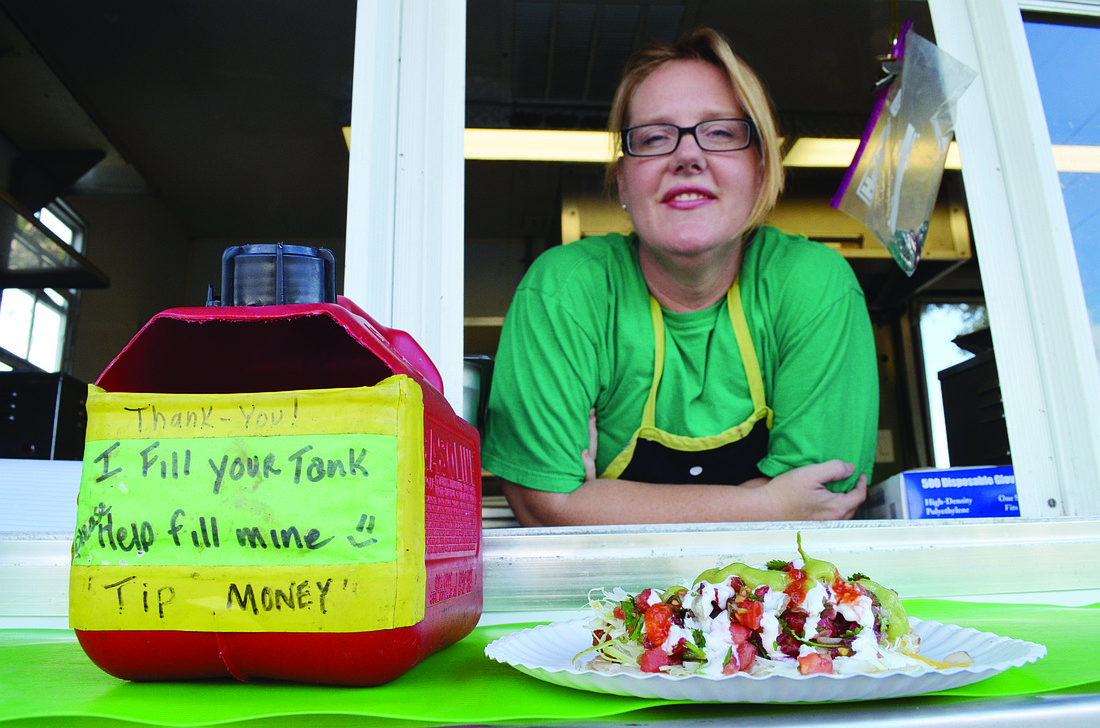- May 8, 2024
-
-
Loading

Loading

If you tell Chris Jett you haven’t been to a food truck in Sarasota, he won’t hold it against you.
Jett, the co-owner of Sarasota’s first licensed food truck and a founder of the SRQ Food Truck Alliance, might have reasons to feel personally affronted. Still, he knows many people may not be familiar with his truck, Baja Boys, or the more than 20 other trucks involved with the SRQ Food Truck Alliance.
For those who haven’t patronized one of those businesses, Jett does pose one question: Why not?
The answer may lie with county and city rules, not consumers. Food trucks, a bustling trend nationwide, are just beginning to establish a foothold in Sarasota. The SRQ Food Truck Alliance, formed earlier this month, is focused on reforming Sarasota County and city of Sarasota regulations governing food trucks.
The group lists a variety of those regulations as major obstacles to success. As a comparison, Jett points to a battle in Chicago over regulations that prevent food trucks from operating within 200 feet of a brick-and-mortar restaurant. In Sarasota, regulations are four times as stringent, preventing mobile vendors from operating within 800 feet — the length of more than two football fields — of a traditional restaurant.
The SRQ Food Truck Alliance has attempted to enlist outside help as it pushes for new regulations. The Institute for Justice, a libertarian nonprofit law firm, has been an advocate for laws that would better allow food trucks to thrive as the trend has grown.
When Institute for Justice activism coordinator Phil Appelbaum took a look at Sarasota’s laws, Jett said his assessment was harsh.
“He said that our regulations here are the worst in the country right now,” Jett said. “The worst.”
Calls to reform Sarasota’s food truck regulations are not a new phenomenon. In early 2013, county staff prepared a report discussing the prospect of allowing food trucks outside of the three districts permitted in the county zoning code. Brick-and-mortar restaurants are allowed to operate in seven districts.
Although staff suggested the topic warranted discussion, the conversation fizzled. When a new conversation begins, Jett is optimistic staff will be open to change.
“I don’t want to think they’re malicious — they just don’t know any better,” Jett said. “We’re waiting for a dialogue.”
Brad Bailey, the county’s zoning administrator, is also waiting for a dialogue. Despite creating a petition to encourage the county to revisit its regulations on food trucks, Jett said the alliance has yet to initiate a new line of discussion with staff.
The county regulations on mobile vendors were written five years ago, before the national food truck phenomenon began. The rules were modeled to manage street carts and barbecue trailers, Bailey said.
Given the different nature of food trucks, he said it could make sense to add specific regulations managing those businesses. Still, he indicated the county would heavily consider the effects the trucks may have on brick-and-mortar restaurants.
“We want to be cognizant of the restaurants in the area,” Bailey said. “(Food trucks) can be within 800 feet; they just need to get a notarized affidavit of no objection from nearby business owners.”
In 2012, the Siesta Key Chamber of Commerce and other Siesta Key groups fought against a food-truck permit application for the area. Opponents cited concerns about existing restaurants and aesthetics.
Jett dismissed the idea that food trucks compete with restaurants. He said the trucks target more of an on-the-go clientele, and are susceptible to rainouts and hampered by a lack of seating.
The city, which allows food trucks to operate via provisional-use permit, currently has no permitted food trucks. City spokeswoman Jan Thornburg said she had yet to receive any negative feedback from vendors about its regulations, though members of the SRQ Food Truck Alliance have bemoaned the standards there, as well.
In the week the petition advocating for change has been public, more than 1,000 people have signed it, Jett said. Many people — including devoted customers — were unaware of the regulations governing food trucks in the area, he said.
The SRQ Food Truck Alliance was formed to shine a light on those regulations, and, its members hope, to mobilize support for rewriting them.
“That’s how it came about,” Jett said. “We’re just a small group of people that needs to have a voice.”
RULES OF THE ROAD
The county zoning code includes the following regulations on the operation of food trucks:
• Food trucks are not allowed to operate within 800 feet of any established restaurant unless written, notarized consent is provided from the restaurant operator.
• Food trucks are not allowed to operate within a 750-foot radius of another temporary vendor location.
• Street vendor vehicles are required to be no larger than 10 by 20 feet, and to have no more than four wheels.
• Food trucks are allowed to operate in areas zoned as Commercial General, Industrial Light Warehousing and Planned Industrial Development.